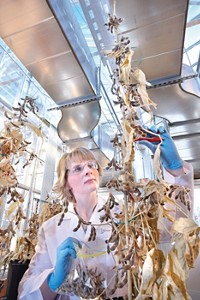Advertisement
Grab your lab coat. Let's get started
Welcome!
Welcome!
Create an account below to get 6 C&EN articles per month, receive newsletters and more - all free.
It seems this is your first time logging in online. Please enter the following information to continue.
As an ACS member you automatically get access to this site. All we need is few more details to create your reading experience.
Not you? Sign in with a different account.
Not you? Sign in with a different account.
ERROR 1
ERROR 1
ERROR 2
ERROR 2
ERROR 2
ERROR 2
ERROR 2
Password and Confirm password must match.
If you have an ACS member number, please enter it here so we can link this account to your membership. (optional)
ERROR 2
ACS values your privacy. By submitting your information, you are gaining access to C&EN and subscribing to our weekly newsletter. We use the information you provide to make your reading experience better, and we will never sell your data to third party members.
Business
Deal Sprouts For Monsanto, DuPont
Agbiotech: Firms drop lawsuits over engineered seeds
by Ann M. Thayer
March 28, 2013
| A version of this story appeared in
Volume 91, Issue 13

Monsanto and DuPont have agreed to end a series of lawsuits over genetically modified seeds with a settlement that affirms Monsanto’s technology leadership in the seed business.
The dispute began in 2009 when Monsanto sued DuPont for what it said was DuPont’s unlawful use of its herbicide-tolerance gene technology, called Roundup Ready, in corn and soybeans. DuPont fired back with allegations of anticompetitive conduct by Monsanto.
To settle their disputes, DuPont has agreed to pay $802 million in royalties between 2014 and 2017 for using Monsanto technology in new soybean products. From 2018 through 2023, it will pay at least $950 million to access the technology and additional undisclosed amounts through 2030. Monsanto will be able to use certain disease resistance and corn defoliation technology from DuPont.
For both companies, the agreements remove litigation-related uncertainties. DuPont faced paying $1 billion in compensatory damages after a St. Louis jury decided in August 2012 that it had infringed Monsanto’s patents. Punitive damages could have been three times that amount.
DuPont appealed that decision, and analysts questioned whether the ruling would stand. But Monsanto has now agreed to drop the case, along with the damage award. DuPont is dismissing its antitrust claims against Monsanto.
Although it must pay at least $1.75 billion in royalties, DuPont sees the outcome as positive. The deal provides “broad flexibility to create unique product combinations for the future, integrating genetics and traits from DuPont Pioneer, Monsanto, and others,” says Paul E. Schickler, president of DuPont’s Pioneer seed business. Calling the settlement attractive, Schickler says it will allow Pioneer to “sustain our strong business momentum.” Pioneer had sales of $7.3 billion last year.
Reaching an agreement “signals a new approach to our companies doing business together,” Monsanto President Brett D. Begemann says. Even so, Monsanto, well-known for fighting both competitors and farmers in court, remains the top seed. In 2012, its seed and traits business posted $9.8 billion in sales.
The arrangement is “a win for both parties,” concludes Michael E. Cox, a stock analyst with investment firm Piper Jaffray. But it also “serves to further validate Monsanto’s technological leadership position in biotech seed.”





Join the conversation
Contact the reporter
Submit a Letter to the Editor for publication
Engage with us on Twitter